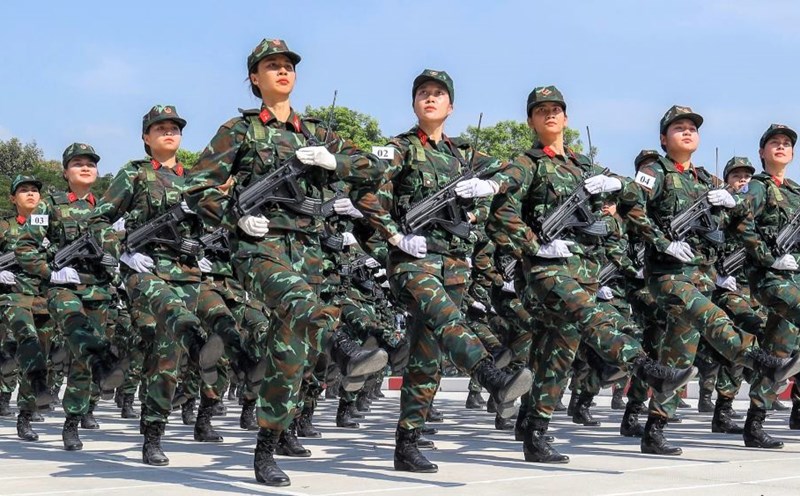A couple who were overly intimate in a CGV cinema were caught by the cinema's surveillance camera system. After that, this image appeared on Facebook and some forums... The same thing can happen when someone goes to the supermarket or at a public swimming pool. Who protects citizens' privacy, because they can't know when they accidentally go into surveillance cameras...
Right to privacy
Let's discuss whether the behavior of the couple at the cinema violates traditional customs or not? because it is another problem. The story here is how who is allowed to use surveillance cameras and use other people's images? How should each person's privacy be protected?
A few years ago, a newspaper quoted an interesting story: If you bring a surveillance camera to a neighbor's house, will you be fined? The controversial situation was that at that time, the law still did not have clear regulations on what "private secrecy" was? What is the scope of "private secrecy"?
According to lawyers, Article 38 of the 2015 Civil Code stipulates that private life, personal secrets, and family secrets are intangible and protected by law. Thus, attaching a camera to another house if it is for the purpose of monitoring, violating private life, personal secrets, and family secrets is an illegal act. However, the provisions of administrative and criminal law have not adjusted this behavior. Therefore, it is very difficult for agencies to handle and there is no basis for sanctioning.
The 2015 Civil Law, effective from January 1, 2017, has had adjustments, dedicating a section with 15 detailed regulations on personal rights. In which, Article 32 affirms that The use of an individuals image must be agreed upon by that persons consent except in some cases where the image is used for national, ethnic, or public interests; the image is used from public activities... without harming the honor, dignity, and reputation of the person with the image.
Is there a need for a law on camera surveillance?
Back to the story of the two people being recorded by the cinema camera and the image was distributed. The installation of this hidden camera system comes from protecting the copyright of the film, avoiding the audience filming in the theater and spreading. But according to the lawyers, the theater should be notified to the audience (by the notification line running on the screen, by symbol or by a sheet of paper indicating the camera) to remind.
In particular, even if announced, cinemas must be responsible for preserving and have specific regulations to prevent visitors' images from leaking out, especially spreading on social networks.
Currently, a controversial issue is the installation of cameras in preschools. In Ho Chi Minh City, it is expected that by the 2019-2020 school year, mass camera installation will be implemented in 24 districts with classrooms, bedrooms, dining rooms, kitchens, school gates, playgrounds, etc. Through the pilot and survey, 50% of teachers did not agree to be supervised and also 50% of parents were concerned that the images of their children in class were made public on the internet.
How to monitor and ensure that the installation of cameras does not violate privacy when information technology and electronics are developing rapidly? According to the proposal of some lawmakers, there should be more specific regulations on the use of surveillance cameras in offices and public places to balance public interests (security reasons, anti-theft, traffic control systems...) and the private interests of individuals need to be protected from the abuse of images collected from public cameras.
5 common violations of private life in Vietnam
In Vietnam, 5 common acts of violating private life include: Posting personal records of others online; publicizing scoreboards at school, online or in the press; posting private photos of children online or children's photos without consent; Arbitrarily taking and posting funeral photos and finally posting photos and personal stories of others on social networks. L.A
Lawyer Nguyen Anh Thom (Hanoi Bar Association)
“The secret of private life is a discreet story, the story wants to hide. The staff in the CGV cinema captured the image of the guests and the relatives to see, after that, the relatives of the staff posted on social networks, thus infringing on the secrets of other people's private lives. When they have not been agreed, it is a violation of the law.
According to regulations, anyone who disseminates information about the personal life of another person without their consent or without the law's permission will be subject to administrative sanctions according to Point b, Clause 2, Article 64 of Decree 174/2010. The fine is from 10-20 million VND. Or prosecute criminal liability under Article 288 of the 2015 Penal Code for the crime of "Illegal provision or use of computer network information, telecommunications network".
In case the "sensitive" images of customers are assessed by specialized agencies as being on the list of obscene cultural products, those who made and posted them on social networks for the purpose of disseminating them to others, if they satisfied the signs of crime, will be prosecuted for the crime of Propagating obscene cultural products according to Article 326 of the 2015 Penal Code. THAP ANH










